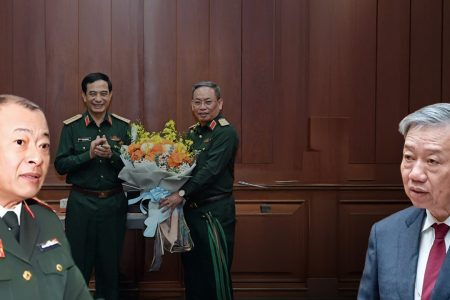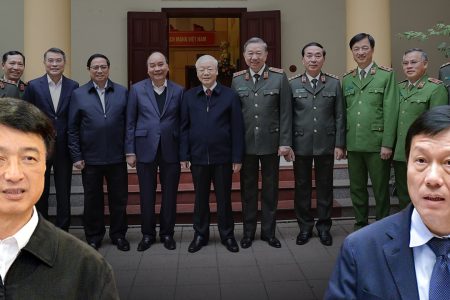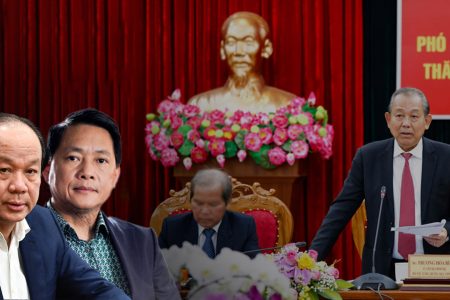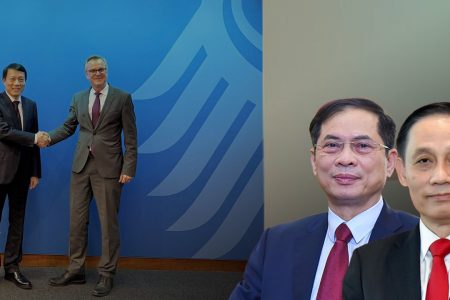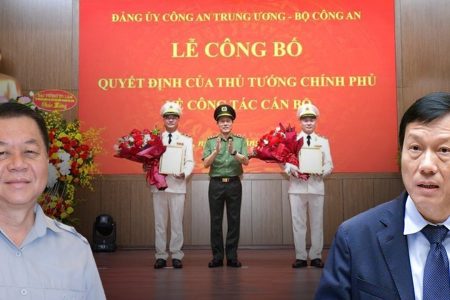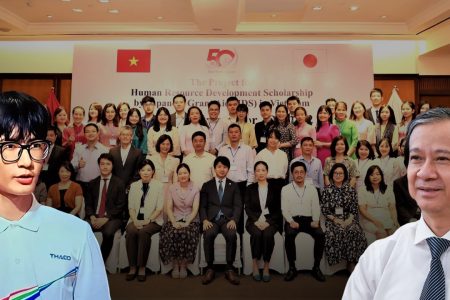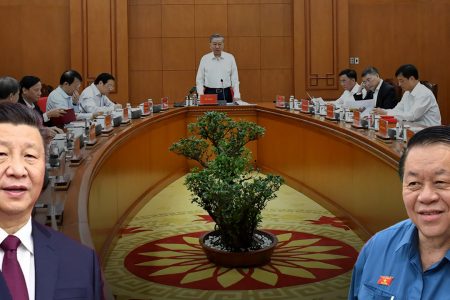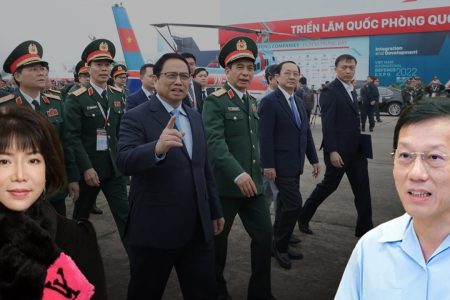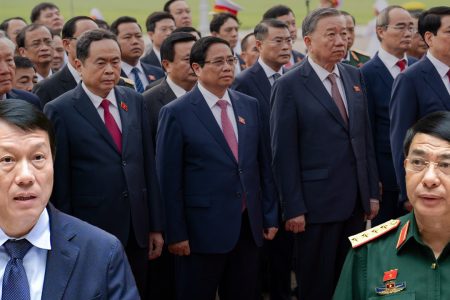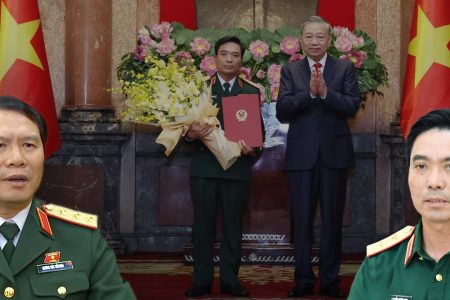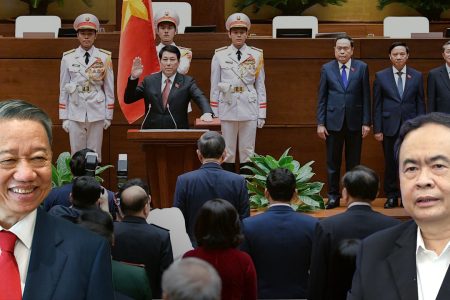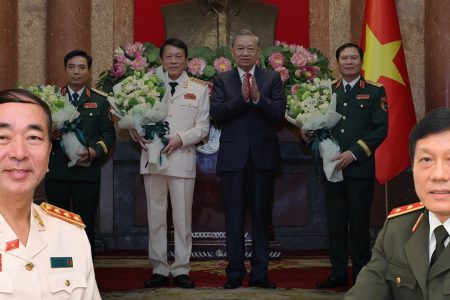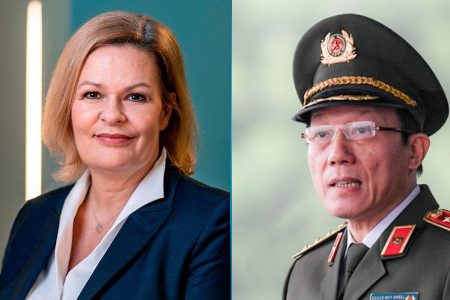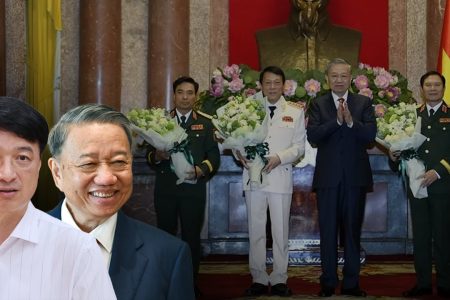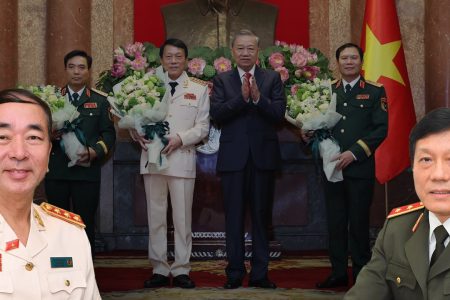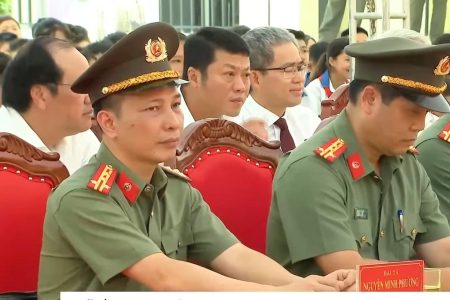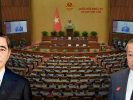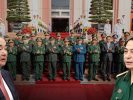
Corruption in Vietnam has been a national problem for several decades, and officials are greedy from top to bottom, “eating without leaving anything.” Corruption from big to small, from funds in neighborhood groups, to unreasonable fees in schools, from “bread” of the traffic police to the lubricate payments of big projects, all make people frustrated and angry. In that context, Communist Party of Vietnam’s General Secretary Nguyen Phu Trong appeared with an “anti-corruption furnace” that seemed to be the end of a deadlocked society, and therefore, Mr. Trong has been praised to the sky.
But, nearly 10 years since the initiation of the “burning process,” corruption has not decreased, even, the level of corruption has increased. No one can deny the role of the General Secretary in shaping and promoting anti-corruption consciousness. However, the results so far have only stopped at the belief that corruption can be fought, but the people have not seen the real effect of this work. Because, the more Mr. Trong’s furnace burns, the more corruption appeared at higher levels, the bigger the big cases. Even now, corruption does not need to be hidden, but forms groups, showing its organization, running through and crept from the top to the lowest corners of the regime.
It can be said that, in order to deal with corruption in Vietnam, a center of power that dares to fight and dare to win, as Mr. Nguyen Phu Trong is doing, is not enough effective. There needs to be a fundamental, radical change, that is, there needs to be a system of power that is clearly divided and independent of each other, with a strict and transparent inspection and supervision mechanism.
Will the Party dare to do this to really eliminate corruption?

Back to the case of the two Deputy Prime Ministers who were recently decided to resign, the public needs an official explanation as to why they were dismissed and how the process of burning the furnace was like that. The state-controlled media only announced that the party’s Central Committee agreed to let the two men stop their positions, but did not explain why. Public opinion whispers that the two men are the last bosses of two great corruption cases that occurred during the pandemic. But is that just an excuse to cool down public anger?
The level of breaking the big cases makes the public question, is it possible to burn all the firewood? Or conversely, the pressure to burn the furnace is too great, at some point will cause the Party to draw firewood from the bottom of the pot? The pursuit of the “final boss” will also lead to political risks, which can lead to loss of control. Although to some extent, corrupt officials are really fed up with Trong’s furnace, it doesn’t prove that Trong has really fought corruption. And the risk will come when there is a stick strong enough to burn back the furnace.
Burning the furnace also leads to a problem, which is justice. It is difficult to draw a clear line between an official who is blamed for lax management with serious consequences, and a corrupt official who has been correctly identified as having “eaten” money. It is also difficult to determine the extent of harm between the corrupted officials and those who have not been investigated ones. Thus, where is the justice between the responsibilities of officials and the people, and where is the justice between officials in the system. That is not to mention the justice between the corrupt criminal group and other criminal groups.
Therefore, the problem is that it is not possible to just look for the “last boss.”

In the current Vietnamese political system, it is difficult to attribute political responsibility to an individual, because Vietnam’s mechanism is collective decision-making. Mr. Trong has failed to attribute responsibility for some scandals to Mr. Nguyen Tan Dung. But now he has succeeded in blaming Mr. Pham Binh Minh and Vu Duc Dam. Just because, now, the power in Mr. Trong’s hand is greater than before, and the bravery of Mr. Minh and Mr. Dam cannot be equal to Mr. Dung.
It seems that, tired of the “burning furnace” campaign, Mr. Nguyen Phu Trong is starting a new political process, that is: Encouraging officials to take the initiative to resign for responsibility. To carry out this process, of course, it will have to go through a process of negotiation, cooperation and compromise on both sides, retiring in exchange for some protection- not being probed for their wrongdoings.
This also means that people do not wait to see who is the “final boss” of corruption. It’s all just a regime secret.

Thoibao.de (Translated)



